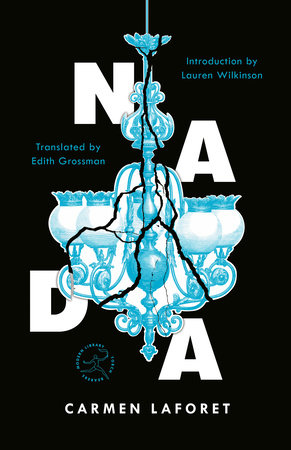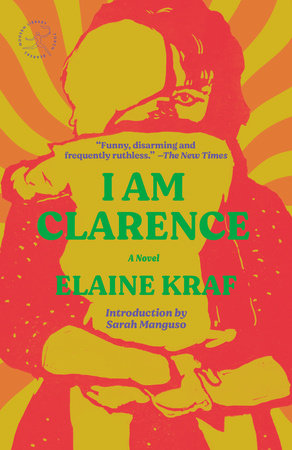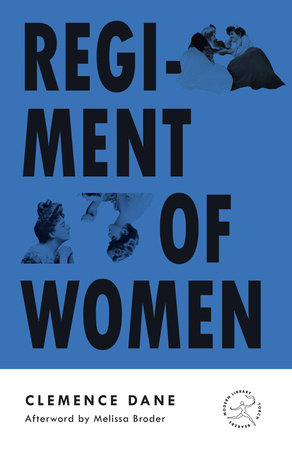Excerpt
Nada
I
Because of last-minute difficulties in buying tickets, I arrived in Barcelona at midnight on a train different from the one I had announced, and nobody was waiting for me.
It was the first time I had traveled alone, but I wasn’t frightened; on the contrary, this profound freedom at night seemed like an agreeable and exciting adventure to me. Blood was beginning to circulate in my stiff legs after the long, tedious trip, and with an astonished smile I looked around at the huge Francia Station and the groups forming of those who were waiting for the express and those of us who had arrived three hours late.
The special smell, the loud noise of the crowd, the invariably sad lights, held great charm for me, since all my impressions were enveloped in the wonder of having come, at last, to a big city, adored in my daydreams because it was unknown.
I began to follow—a drop in the current—the human mass that, loaded down with suitcases, was hurrying toward the exit. My luggage consisted of a large bag, extremely heavy because it was packed full of books, which I carried myself with all the strength of my youth and eager anticipation.
An ocean breeze, heavy and cool, entered my lungs along with my first confused impression of the city: a mass of sleeping houses, of closed establishments, of streetlights like drunken sentinels of solitude. Heavy, labored breathing came with the whispering of dawn. Close by, behind me, facing the mysterious narrow streets that led to the Borne, above my excited heart, was the ocean.
I must have seemed a strange figure with my smiling face and my old coat blown by the wind and whipping around my legs as I guarded my suitcase, distrustful of the obsequious “porters.”
I remember that in a very few minutes I was alone on the broad sidewalk because people ran to catch one of the few taxis or struggled to crowd onto the streetcar.
One of those old horse-drawn carriages that have reappeared since the war stopped in front of me, and I took it without thinking twice, arousing the envy of a desperate man who raced after it, waving his hat.
That night I rode in the dilapidated vehicle along wide deserted streets and crossed the heart of the city, full of light at all hours, just as I wanted it to be, on a trip that to me seemed short and charged with beauty.
The carriage circled the university plaza, and I remember that the beautiful building moved me as if it were a solemn gesture of welcome.
We rode down Calle de Aribau, where my relatives lived, its plane trees full of dense green that October, and its silence vivid with the respiration of a thousand souls behind darkened balconies. The carriage wheels raised a wake of noise that reverberated in my brain. Suddenly I felt the entire contraption creaking and swaying. Then it was motionless.
“Here it is,” said the driver.
I looked up at the house where we had stopped. Rows of identical balconies with their dark wrought iron, keeping the secrets of the apartments. I looked at them and couldn’t guess which ones I’d be looking out of from now on. With a somewhat tremulous hand I gave a few coins to the watchman, and when he closed the building door behind me, with a great rattling of wrought iron and glass, I began to climb the stairs very slowly, carrying my suitcase.
Everything felt unfamiliar in my imagination; the narrow, worn mosaic steps, lit by an electric light, found no place in my memory.
In front of the apartment door I was overcome by a sudden fear of waking those people, my relatives, who were, after all, like strangers to me, and I hesitated for a while before I gave the bell a timid ring that no one responded to. My heart began to beat faster, and I rang the bell again. I heard a quavering voice:
“Coming! Coming!”
Shuffling feet and clumsy hands sliding bolts open.
Then it all seemed like a nightmare.
In front of me was a foyer illuminated by the single weak lightbulb in one of the arms of the magnificent lamp, dirty with cobwebs, that hung from the ceiling. A dark background of articles of furniture piled one on top of the other as if the household were in the middle of moving. And in the foreground the black-white blotch of a decrepit little old woman in a nightgown, a shawl thrown around her shoulders. I wanted to believe I’d come to the wrong apartment, but the good-natured old woman wore a smile of such sweet kindness that I was certain she was my grandmother.
“Is that you, Gloria?” she said in a whisper.
I shook my head, incapable of speaking, but she couldn’t see me in the gloom.
“Come in, come in, my child. What are you doing there? My God! I hope Angustias doesn’t find out you’ ve come home at this hour!”
Intrigued, I dragged in my suitcase and closed the door behind me. Then the poor old woman began to stammer something, disconcerted.
“Don’ t you know me, Grandmother? I’m Andrea.”
“Andrea?”
She hesitated. She was making an effort to remember. It was pitiful.
“Yes, dear, your granddaughter. . . . I couldn’ t get here this morning the way I wrote I would.”
The old woman still couldn’t understand very much, and then through one of the doors to the foyer came a tall, skinny man in pajamas who took charge of the situation. This was Juan, one of my uncles. His face was full of hollows, like a skull in the light of the single bulb in the lamp.
As soon as he patted me on the shoulder and called me niece, my grandmother threw her arms around my neck, her light-colored eyes full of tears, and saying “poor thing” over and over again. . . .
There was something agonizing in the entire scene, and in the apartment the heat was suffocating, as if the air were stagnant and rotting. When I looked up I saw that several ghostly women had appeared. I almost felt my skin crawl when I caught a glimpse of one of them in a black dress that had the look of a nightgown. Everything about that woman seemed awful, wretched, even the greenish teeth she showed when she smiled at me. A dog followed her, yawning noisily, and the animal was also black, like an extension of her mourning. They told me she was the maid, and no other creature has ever made a more disagreeable impression on me.
Behind Uncle Juan appeared another woman who was thin and young, her disheveled red hair falling over her sharp white face and over the languor that clung to the sheets, which increased the painful impression made by the group.
I was still standing, feeling my grandmother’s head on my shoulder, held by her embrace, and all those figures seemed equally elongated and somber. Elongated, quiet, and sad, like the lights at a village wake.
“All right, that’s enough, Mamá, that’s enough,” said a dry, resentful-sounding voice.
Then I realized there was yet another woman behind me. I felt a hand on my shoulder and another lifting my chin. I’m tall, but my Aunt Angustias was taller, and she obliged me to look at her like that. Her expression revealed a certain contempt. She had graying hair that fell to her shoulders and a certain beauty in her dark, narrow face.
“You really kept me waiting this morning, my girl! . . . How could I imagine that you’d arrive in the middle of the night?”
She’d let go of my chin and stood in front of me with all the height of her white nightgown and blue robe.
“Lord, Lord, how upsetting! A child like this, alone . . .”
I heard Juan grumble. “Now Angustias is ruining everything, the witch!”
Angustias appeared not to hear him.
“All right, you must be tired. Antonia”—and she turned to the woman enveloped in black—“you have to prepare a bed for the señorita.”
I was tired, and besides, at that moment I felt horribly dirty. Those people moving around or looking at me in an atmosphere darkened by an accumulation of things crowded together seemed to have burdened me with all the trip’s heat and soot that I’d forgotten about earlier. And I desperately wanted a breath of fresh air.
I observed that the disheveled woman, stupefied by sleep, smiled as she looked at me and also looked at my suitcase with the same smile. She obliged me to look in that direction, and my traveling companion seemed somewhat touching in its small-town helplessness. Drab and tied with rope, it sat beside me, at the center of that strange meeting.
Juan approached me:
“Andrea, don’t you know my wife?”
And he pushed at the shoulders of the woman with uncombed hair.
“My name’s Gloria,” she said.
I saw that my grandmother was looking at us with a worried smile.
“Bah, bah! . . . What do you mean by shaking hands? You have to embrace, girls . . . that’s right, that’s right!”
Gloria whispered in my ear:
“Are you scared?”
And then I almost was, because I saw Juan making nervous faces, biting the inside of his cheeks. He was trying to smile.
Aunt Angustias came back, full of authority.
“Let’s go! Everybody get to sleep—it’s late.”
“I wanted to wash up a little,” I said.
“What? Talk louder! Wash up?”
Her eyes opened wide with astonishment. Angustias’s eyes and everybody else’s.
“There’s no hot water here,” Angustias said finally.
“It doesn’t matter. . . .”
“You’d dare to take a shower this late?”
“Yes,” I said. “Yes.”














